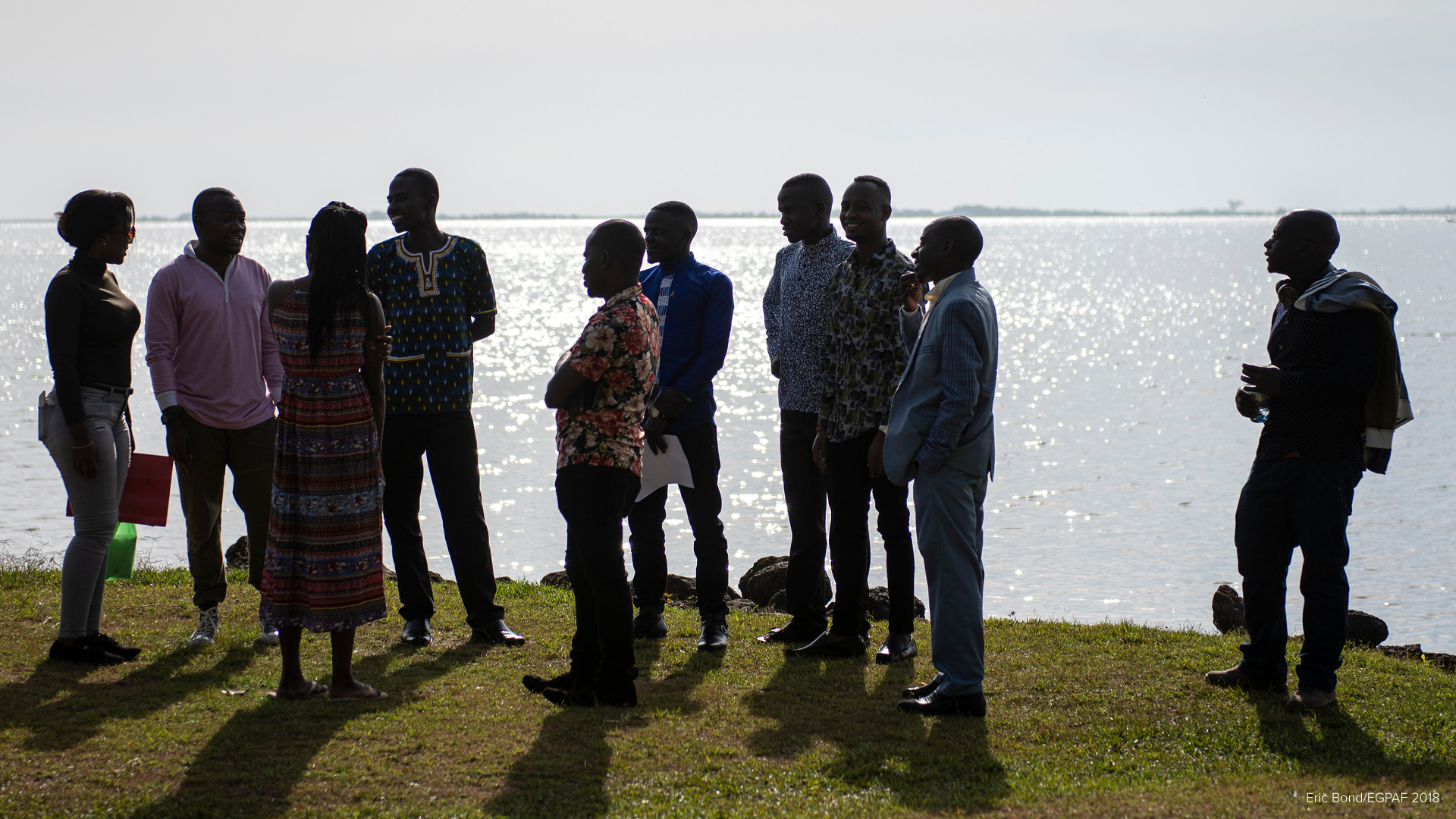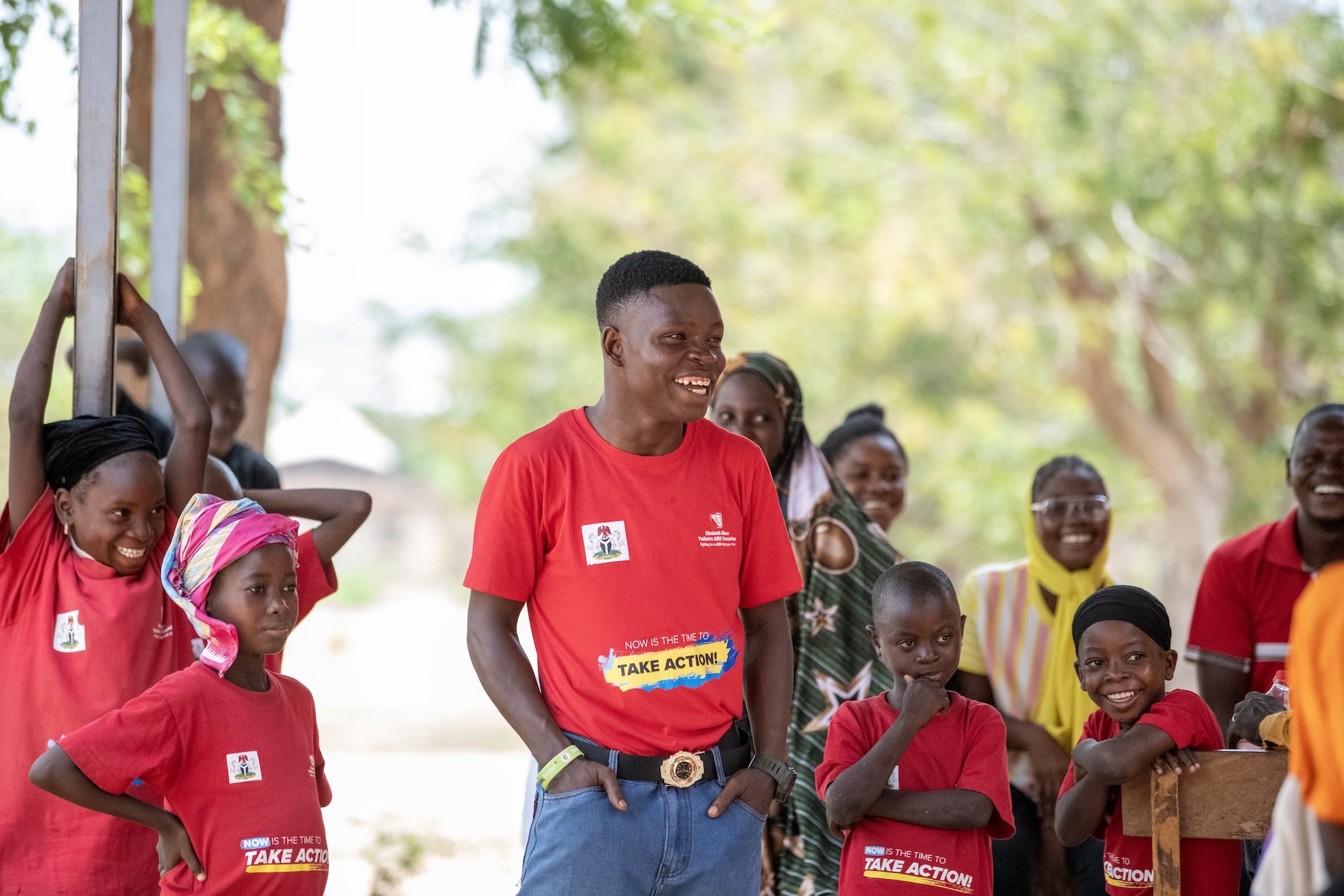Gertrude Mwiinga, 40, says that she used to be ashamed about living with HIV and was afraid to tell her son, Sholdon, that he, too, had been infected with the virus. However, through the support of health workers at the Mbuya Daisy site in Mukuyo, Zambia, she found the strength to help him accept his HIV status.
“Before Mbuya Daisy, I used to hide my son at home and tell him, ‘You are suffering from chest pains, you are having a headache, and this is why you are taking these drugs,’” says Gertrude. “I didn’t want to disclose the [HIV] status of my child. But from the day I started coming to Mbuya Daisy, it was easy for me to disclose the status to my boy.”


“I used to suspect that maybe I had the HIV virus because they were giving me these drugs every day,” says Sholdon. “My mother used to tell me that I was suffering from malaria.”
In the 1990s and early 2000s, HIV devastated families like the Mwiingas. Husbands and wives became infected with the virus and unknowingly transmitted HIV to their children. Antiretroviral therapy medicines (ARV)s weren’t freely available, and families struggled simply to stay alive. Youth like Sholdon were left behind, disempowered.
Many parents kept a secret from their HIV-positive children—a secret that could kill.
The Mbuya Daisy program, funded by the U.S. Centers for Disease Control and Prevention (CDC) and implemented by the Elizabeth Glaser Pediatric AIDS Foundation (EGPAF), empowers families like the Mwiingas to disclose their HIV status, both within the family and within their communities. The Mbuya Daisy adults group meets once a month at the Mukuyu Rural Health Centre, and the children’s group meets twice a month. Participants learn about how HIV affects their bodies, about the importance of adhering to their ARV regimens, and about strategies for disclosing their HIV status and the status of their children.

The Mbuya Daisy program helped Gertrude tell her son the truth. But it was nearly too late.
“I had stopped taking the drugs,” Sholdon says, who is now 20. “But when my mother told me about the importance of taking the drugs, I started again. And I’ve even encouraged other friends to continue taking their drugs.”
“He quit, because his parents were lying to him,” says Lawrence Kaluwa, a community health worker and founder of the Mbuya Daisy group in Mukuyu. “He started hating the medicine, he never took the medicine, until this program was introduced. And then it was easy for the mother and the other parents to disclose the importance of the medicine. At last he started to take his medicine.”
“I really encouraged [Sholdon] to come and join the support group for the adolescents because he will be able to go and teach other friends about prevention and transmission of HIV. He is very open to his friends now,” says Gertrude. “His friends used to run away, because they heard that the mother herself was taking these drugs the whole family is also taking these drugs—the friends didn’t want to come near him. But nowadays he is free with his friends at school.”
“I teach that it is very important to take the drugs because when you are taking the drugs, there is nothing wrong,” Sholdon says. “You will live a normal life, you will be healthy.”
Sholdon plans to become a mechanic after he finishes school.
“Before we got information from Mbuya Daisy, there was discrimination. We had stigma, in fact,” says Sholdon’s father Gilbert, 56. “But after having all the information, our minds were opened.”

Today, Gilbert is the most enthusiastic member of the Mbuya Daisy adults group, sitting proudly with his wife and their two HIV-free babies. Gilbert serves as a volunteer psychosocial counselor in the community.
“I am very happy. I want this program to continue, because we have been able to go in the community and teach other women, other friends who have been living with the virus to come to the facility and join Mbuya Daisy,” Gertrude says. “It has really helped them to disclose their status to their children. This program should continue so it can help other souls in the community.”

Photos by Heather Mason, EGPAF




